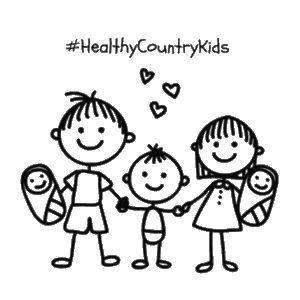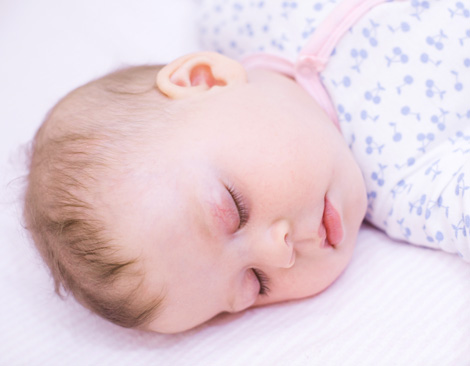Your Baby’s Sleep (PDF Version)
Sleep is important for your baby. It is vital for their growth and development, it supports their immune system, helps to build brain connections and enables general contentment in their awake time. The amount of sleep that a baby needs will vary. Typically, newborn babies sleep an average of about 16 hours over a 24-hour period. Some will sleep more, and some will sleep less. Babies under three months of age will generally only be awake for one to one and a half hours at a time. Babies who are getting enough sleep will usually be content and able to engage with you for a short period in their awake time or during feeding time.
11 Tips for Safe Sleeping
1. Put babies to sleep on their backs
2. Make sure babies heads or faces can’t get covered while they’re sleeping
3. Avoid smoking
4. Use a cot that meets current Australian safety standards
5. Share a room for the first six to twelve months
6. Support your partner to breastfeed if she can
7. Avoid cot bumpers, soft toys, pillows, doonas and sheepskin or lamb’s wool
8. Use a firm and well-fitting mattress
9. Avoid baby sleeping on couches or makeshift bedding
10. Dress your baby in clothing that’s warm, but not hot – never put a baby to sleep in a beanie
11. Make sure anyone caring for your baby knows the above tips!
Common signs of tiredness:
There are many signs you can look for that might mean your baby is getting tired. These include; being grizzling, clenching fists, yawning, rubbing eyes or ears, arching back, jerky movements, difficulty focusing, going cross-eyed, sucking fingers, disengaging from eye contact and crying.
Your baby may give mixed cues when they are stressed or tired. The main thing is to be sensitive to their needs. You will gradually learn what most of their cues mean and will be able to respond promptly and sensitively to meet their needs.
Sleep patterns:
It’s common for newborns to have irregular sleep patterns in the early days and weeks. You will notice that sleeping and feeding are intertwined, both affecting each other. A rhythm will slowly start to develop over the coming weeks.
Many babies will not be able to distinguish between night and day, waking for feeds and sleeping in cycles that don’t resemble our own sleep and wake patterns. This of course impacts on our own sleep, which can lead to fatigue and stress. In order to reduce this, it is important for you and your partner to rest when you have the opportunity.
As your baby grows, sleep patterns will change. From stage to stage, you will adapt and find ways to help your baby settle. There is no quick fix, but in time, with your responsive guidance, your baby will develop the ability to self-settle and sleep for longer periods of time.
Frequently asked Questions:
How much will my baby sleep?
The amount of sleep that babies need varies from child to child. The amount will decrease over the first three months and then stabilise during their first 12 months.
My baby doesn’t sleep at night!
Don’t worry, your baby will quickly learn to respond to the patterns of light and dark, night and day rhythms. Some babies need more help than others.
When will my baby have a sleep routine?
It may take up to 14 weeks – as their brain develops – for babies to start a pattern of responding to changes in night and day rhythms. You will help them to develop a routine with soothing, settling and sleep cues.
Want to know more?
If you would like to talk to someone about your baby’s sleep, contact Ngala’s Parenting Line on or Country Families team by calling 9368 9368 (metro) or 1800 111 546 (country).
Links to resources:
For parenting support and information contact [email protected] or Ngala Parenting Line
Country Dad’s SMS Service is provided by Ngala and supported by WA Country Health.


